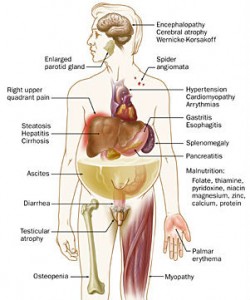 Doesn’t the promotion of the “disease concept” help addicts to avoid taking responsibility for their behavior?
Doesn’t the promotion of the “disease concept” help addicts to avoid taking responsibility for their behavior?
The only people I’ve ever heard using the “disease concept” as an excuse are practicing alcoholics who have no real intention of changing. I hear something totally different from addiction counselors and other professionals who subscribe to what has been called the “clinical approach” to treatment and recovery.
While recognizing the impact of factors like heredity and brain chemistry in the development of addiction, they know that real change happens only when addicts and alcoholics begin to take responsibility for their lives and truly “own” their own behaviors. As a matter of fact, they tend to believe that knowing one is an alcoholic or drug addict brings with it a greater accountability.
If an individual truly accepts personal powerlessness over alcohol and drugs, he or she must begin following very specific set of action steps that lead to recovery. Building the right sort of accountability into the lives of recovering addicts includes:
A. Accountability to God — Every recovering addict must learn is the discipline of maintaining a clear conscience. Freedom from guilt and shame are essential elements of relapse prevention. This involves 1) learning to be sensitive to the conviction of the Holy Spirit and practicing daily repentance, and 2) increased self-awareness through the discipline of a daily personal inventory
B. Accountability for Righting Past Wrongs — No one came move confidently into the future if he or she is carrying unbearable burdens from past failures. Every addict who wants to move into a new, satisfying life must be very deliberate about making amends, especially to family members and others close to them..
C. Accountability to a Spiritual Community — Real growth in recovery involves much more than just “going to church.” Spiritual stability and maturity happen in the context of a church home. They need to develop friendships with “normal” people, find spiritual nurture and guidance, experience the joy of corporate worship, and find an outlet for meaningful Christian service.
D. Accountability to a Group Of Peers — The Biblical mandate for support groups is found in 2 Corinthians 1:3.4 where the Apostle Paul expresses thankfulness for being able to comfort others with the same comfort he himself had received from God. There is special power and a special degree of grace present when one recovering addict shares his or her experience, strength and hope with another who is experiencing similar struggles.
E. Accountability to a Sponsor/Mentor — Participation in support groups and church are essential. But, they work best when a recovering addict also has one special person of the same sex who is farther along in the journey of recovery to whom he or she can be accountable. There is no replacement for having this confessor and confidant, especially in the early days of recovery. So, how does this work in a residential recovery program setting?




